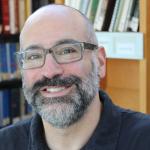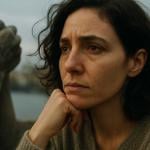Yesterday we commemorated the Shoah, the Holocaust. We reiterate time and again as we commemorate the Shoah the word Zachor, remember. What does this really mean?
My Rabbi began his sermon before Yikzor (the memorial service) on the 8th day of Pesach (Passover) by speaking about the commandment to remember our slavery and the exodus from Egypt – as if anyone that lived through it could forget. Maybe that’s the point though, while those who lived through such an intense experience would forever be shaped by it, without retelling the stories and making an active decision to remember – the future generations may not. As the now well known and somewhat viral “Non-Sequitur” cartoon featured on a friend of RR’s blog indicates, the importance is to remind the future generations.
What does it mean to remember though? Is it enough to say “never again,” to post a comment on Facebook or Twitter saying that we will never forget, to light a candle or go to a memorial? Or does it need to be more active? Do we have to visit the museums, concentration camps and Yad Vashem? Do we have to personally have relationships with survivors in order to really remember? I don’t know, but what I do know is that each part fills a void and helps to know a small piece of the Shoah.
I know that I am lucky to have had my life touched by survivors from a very early age. I do not know how old I was when I first learned of the Shoah, but I can distinctly recall growing up around survivors. There were two women who were an integral part of my small synagogue growing up, and one man who I met a bit later on, but has remained a part of my life as he is still praying in the minyan my Bat Mitzvah tutor runs. Aggie, Ruth, and Lou have very unique survival stories, though they have one thing in common – they said time and again that their faith kept them alive. As an adult I have met survivors who lost all sense of faith, and have read books retelling so many stories of people who gave up on Judaism. Not Aggie, Ruth and Lou though. These three powerful individuals shaped my knowledge and understanding of the Shoah from a young age to understand that belief in Gd was a saving element. That knowing why they were suffering and knowing they would continue to have these beliefs, somehow helped them to hold on. They weren’t being punished for who they had been; they were being punished for who they always would be. While this may seem more depressing to our modern sensibilities, it seemed to make the pain and suffering less futile for them.
While I will not pretend to have an answer as to how we can best remember, I truly believe that as more and more survivors die as they continue to reach very old ages, we may have to rethink our methods of remembering. We can no longer rely on their presentations in schools and synagogues and community events to stand alone. We must embrace what they tell us, and be able to pass it down for the future generations who may never have their lives touched by the tattooed arm or tearful eyes of a survivor.
(Originally published at RedefiningRebbetzin.com)











